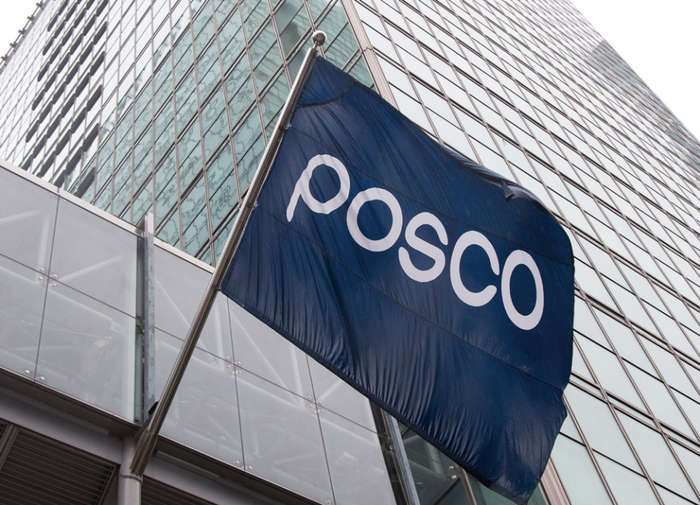 |
Posco Center in Gangnam-gu, Seoul (Yonhap) |
Posco, the country's leading steelmaker, said Wednesday the company will donate 4 billion won ($3 million) to a state-led fund to compensate the victims of forced labor during Japan’s colonial rule of Korea.
The 4 billion won is part of the 10 billion won it pledged to contribute to the public fund in 2012.
Earlier this month, the Foreign Ministry announced it would collect “voluntary” donations from local companies to the Foundation for Victims of Forced Mobilization, an Interior Ministry affiliated public fund, to compensate forced labor victims, instead of a direct payment from responsible Japanese companies.
Although the government noted the donations would be voluntary, local companies, particularly the firms that are considered to have benefited from a 1965 bilateral treaty between Korea and Japan, have come under pressure to make donations.
More than a dozen Korean companies were deemed to have financially benefited from the treaty, through which the South Korean government received a total of $500 million in financial aid from Japan.
The companies include Posco, the state-run utility Korea Electric Power Corp., tobacco maker KT&G, telecommunications firm KT, the Korea Exchange Bank, Korea Expressway Corporation and Korea Railroad. Posco, in particular, received around $119 million, or 24 percent of the financial aid.
Owing to the government’s support, Posco in 2012 pledged to make a total of 10 billion won in contributions to the public fund. It has donated 6 billion won so far -- 3 billion won in 2016 and 2017, respectively.
As Posco takes the lead to make the donation after the Foreign Ministry’s latest announcement, other firms are also considering making contributions to the public fund.
KT&G said it is carefully paying attention to the issue, and the company will follow “when a social consensus is made” regarding how to compensate the victims of forced labor.
South Korea's telecom giant KT also mentioned that the company is "reviewing options." An official from the company said the company will make a donation to the public fund if the government requests it. "But, the government has not directly requested the company through official channels," the official added.
Korea Railroad said it has not made an official comment on the issue.
The companies involved in the treaty seem to be taking a wait-and-see approach, several industry sources said. They said the government proposal to compensate the victims with donations made by local firms, instead of direct payment from related Japanese companies, has drawn backlash.
The backlash "appears to be one of the reasons" why the companies are holding back from making their decisions on the donations.
The third-party compensation, according to the government, has been introduced as a gesture to demonstrate the Korean government's resolve to settle the yearslong dispute with Japan over the forced labor issue.
However, several forced labor victims have said that they would not take the third-party compensation from the public fund. The main opposition party and civic groups have also criticized the government’s solution as “humiliating.”
In 2018, the Supreme Court ordered Nippon Steel and Mitsubishi Heavy Industries to compensate the victims. The companies, however, refused to pay, and the victims later filed another case to liquidate Japanese corporate assets.
Meanwhile, President Yoon Suk Yeol will hold a summit with Japanese Prime Minister Fumio Kishida during his visit between Thursday and Friday.
Prior to his visit to Japan, Yoon said he thought he third-party reimbursement plan was "the most reasonable way" even before he ran in the presidential election last year.







![[Today’s K-pop] Blackpink’s Jennie, Lisa invited to Coachella as solo acts](http://res.heraldm.com/phpwas/restmb_idxmake.php?idx=644&simg=/content/image/2024/11/21/20241121050099_0.jpg)